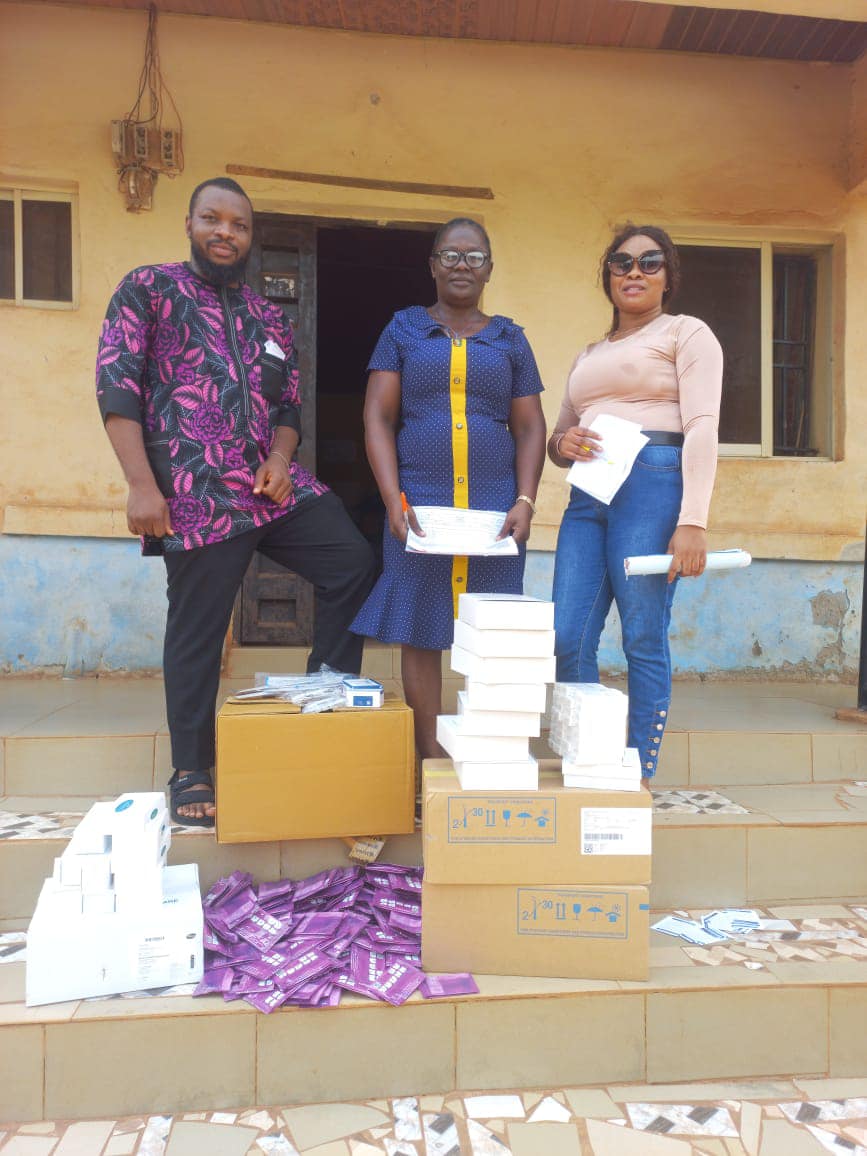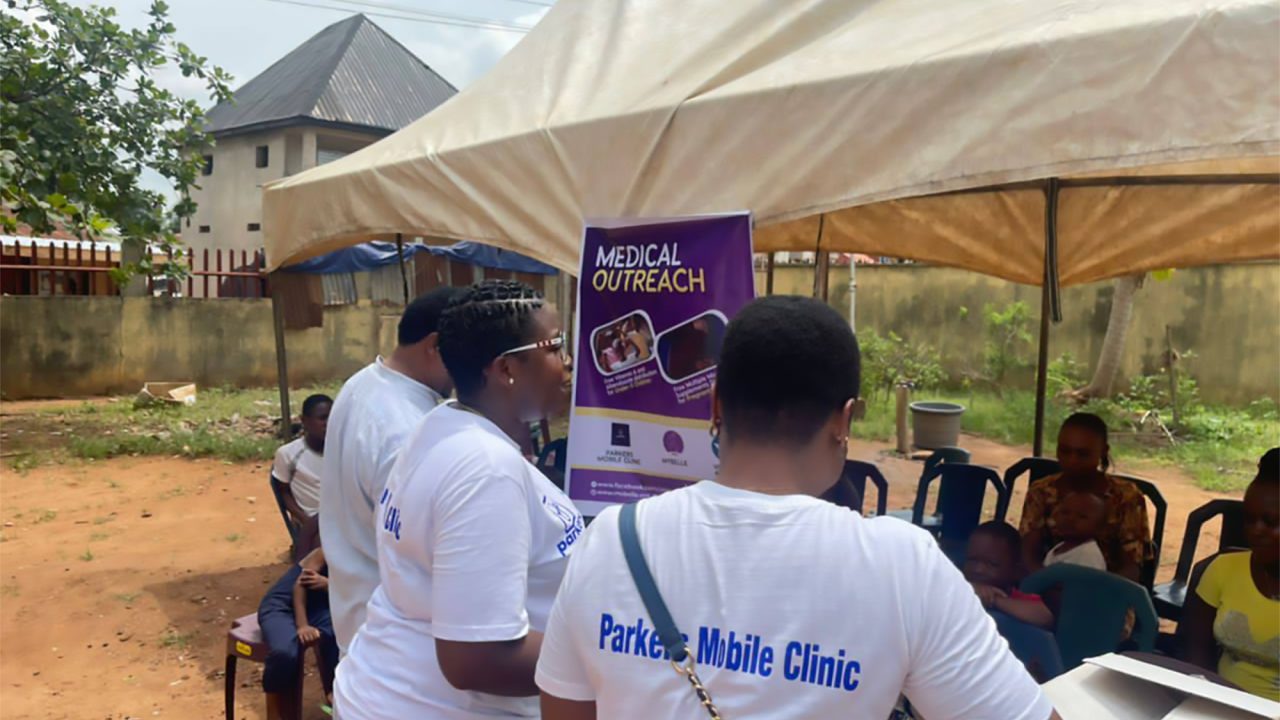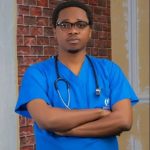For Dr. Charles Umeh, his entry into data science for social impact isn’t an academic or even a philanthropic exercise. For him, it’s personal.
Like thousands of his fellow Nigerians, Umeh–a public health physician–has experienced recurrent displacement because of the country’s increasing incidence of torrential flooding. Families are driven out of their homes and businesses, returning when the water recedes to severely damaged or even destroyed properties. Among the wreckage are healthcare centers, removing a critical community access point of quality health care.
At the same time that the climate crisis is creating more significant, prolonged, and frequent flood events, the COVID-19 pandemic further widened gaps in healthcare access in the country.
Umeh is one man, one doctor. He couldn’t solve the problem alone. But as the executive director of Parkers Mobile Clinic, he’s bringing hope—and health—to Nigeria’s most flood-prone regions.
The Challenge
According to the United Nations, flooding is the most common and recurring disaster in Nigeria, including a devastating flood in 2022 that affected 34 out of the country’s 36 states and displaced 1.3 million people. At the time, UNICEF issued an urgent call to action, pointing to more than 2.5 million people in need of humanitarian assistance—60 percent of whom were children.
In these flood-prone communities, loss of life and property is a constant threat. So, too, are the longer-term impacts. The risks of waterborne disease and malnutrition are high in Nigeria, as evidenced by the thousands of cases of cholera in the wake of the 2022 flood.
“We don’t need anyone to tell us that climate change is real,” Umeh says. “This keeps on happening in Nigeria. Climate change issues ultimately affect the quality of life of people, and it affects their ability to access health care, education, and work.”
Services like health care, education, and employment are absolutely critical, yet Nigerians are often left without a lifeline. Schools and health care centers are destroyed or abandoned, teachers and physicians are likewise displaced, and job opportunities are scarce.
Subsequent disaster aid to the country barely scratches the surface of what is needed.
“Another of the many consequences of these flood-prone areas is that private sectors don’t invest in these communities,” Umeh said.
We want to strengthen capacity building through different models, including virtual training and clinical mentorship so our community health workers can utilize the platform and have access to doctors at any time. This clinical mentorship allows community health care workers to develop their skills and knowledge, leading to healthier communities.
Charles Umeh, MD Executive Director Parkers Mobile Clinic
The Solution
If people can’t access support, Umeh realized he needed to bring support to the people.
He started Parkers Mobile Clinic in 2019, with an initial focus on nutrition and family planning. Resources and supplies—including vitamins, nutritional supplements, and medication for treating parasites–were distributed through community health workers traveling to camps and flood-prone areas in partnership with state ministries of health. In the wake of the pandemic and even more drastic flooding, however, Umeh’s focus shifted and access to health care became the central problem that Parkers Mobile Clinic seeks to solve.
“There is a very high disparity in health care access here,” he said. “Our mission is to strengthen health care solutions for people living in these flood-prone regions. We want to use technology to strengthen access to care.”

The clinic spun out a new initiative, Parkers Resilient Health (PRH), which similarly relies on community health workers to increase awareness and adoption. Through training and mobilizing local residents who speak the language and understand the local context, Umeh says there is a stronger sense of trust from end-users. And now, these community health workers are armed with a resource that Nigerians can access on their own time.
Parkers Resilient Health offers a telemedicine service available via a website or WhatsApp, where users can connect with, be virtually evaluated by, and receive medical guidance from a vast network of doctors and medical professionals.
Telehealth can be delivered directly to users or, particularly exciting to Umeh, the network can be leveraged to further support and empower community health workers. Data from this telemedicine service provides insights into areas of greatest need.
“We want to strengthen capacity building through different models, including virtual training and clinical mentorship so our community health workers can utilize the platform and have access to doctors at any time,” he said. “This clinical mentorship allows community health care workers to develop their skills and knowledge, leading to healthier communities.”
In the future, Umeh hopes to deploy advanced mobile clinics equipped with a more comprehensive range of medical capabilities and medications, with supervision provided by physicians through a built-in telemedicine workstation.
The Takeaway
To date, Parkers Resilient Health’s telemedicine tools and community health outreach model have directly reached more than 15,000 Nigerians, enabling people to better monitor health risks, learn about available resources, and access interventions as needed.
Expanding that reach will require more resources, so Umeh continues to track data to build his case and to better understand local trends in health. In 2023, the Parkers Resilient Health project received an award in the UN Development Programme’s Youth4Climate call for solutions.
Umeh is eager to continue telling the story of Parkers Resilient Health and of his region in Nigeria, where people suffer from the devastating effects of climate change.
“Most times they don’t even contribute to the issue, yet they don’t have enough resources to adapt to climate change challenges when they come,” he said. “But what I’m most proud of is that each day we work to improve the health of people, especially women and children. We are enabling them to have a better quality of life.”

